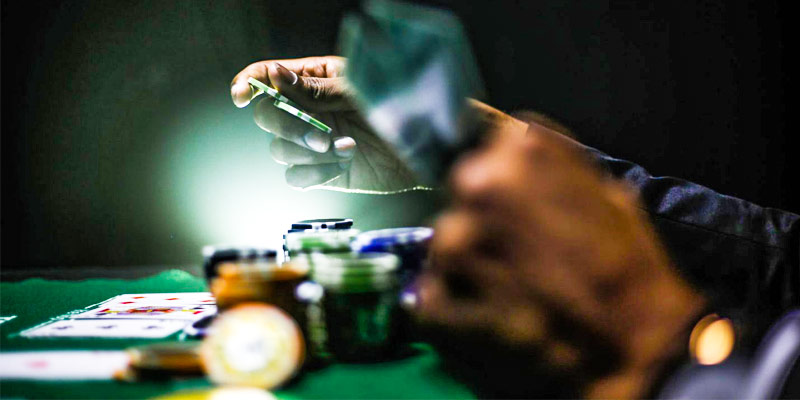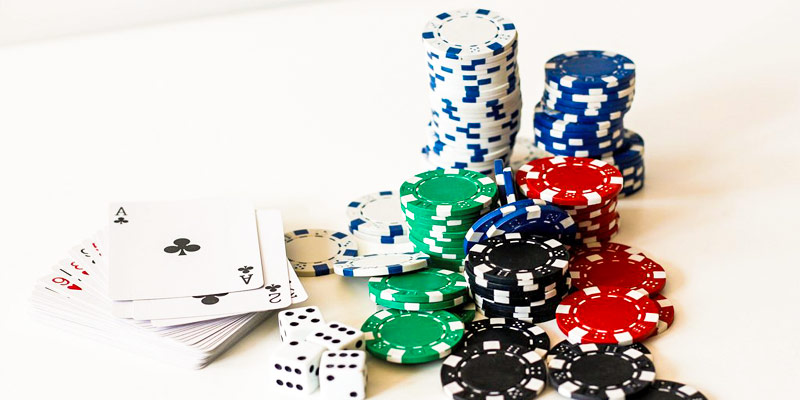
How to Win at Texas Hold’em Cash Games
Cash games in poker are a great starting place for all novices. These are also called live-action games or ring games, and their concept is simple. Players bet real money game after game and are free to leave the poker table whenever they wish. Before leaving, they may exchange the chips they won for cash.
Compared to tournament poker, cash games let you avoid the lengthy run-times and costly buy-ins. But the real question is how to improve your Texas Hold’em strategy and start winning these profitable games.
If you tend to leave empty-handed, you might want to re-evaluate your strategy and begin implementing some of the following tips.
Don’t Skip the Warm-Up
No professional will tell you to neglect the warm-up. Before you jump into a game, take a few moments to eliminate all distractions (put away your phone, log out of all accounts, etc.). Poker can be an extremely complex game, so it asks for undivided attention. Also, if you plan on playing multiple tables in a row, don’t sit down hungry. Also, have water close by since dehydration can impact your brain’s efficiency.
Next, reflect on everything you have learned and all adjustments to your game you wish to make. You can write down a list of all the mistakes you frequently make and go through the specific corrections. Repeat this process several times, and you should eventually start avoiding recurring errors. Moreover, don’t forget to update your list whenever you notice a new issue.
Finally, be mentally prepared for a bad start. If your opening game is not what you have hoped for, don’t allow it to ruin your entire session. A bad move at the beginning should not impact the rest of the night. Have this in mind when you start playing in order to avoid spiraling unnecessarily.
Now, let’s go through several more specific tips on how to improve your Texas Hold’em game.
Bet When You Have a Strong Hand
If you have a high top pair or a better hand, the best move you can make, most of the times, is to bet. The goal with such hands is to build the pot since you have high odds at being the ultimate winner.
Don’t Increase the Pot If You Have a Medium-Strength Hand

When you find yourself holding a medium-strength hand, you are typically faced with a difficult decision.
The prudent thing to do in such a case is to check. If the pot is smaller, these hands can work as successful bluff-catchers.
Generally speaking, medium-strength hands are solid, but their value goes down as the pot gets larger. In turn, you should check these hands at least once (usually on the flop).
Still, keep a level of flexibility. If your opponents are showing weakness by checking as well, chances are your hand is more valuable than theirs. Since, if they had a stronger hand, they would have probably placed a bet.
Bluff If You Have Strong Backdoor Potential
There will be times when your hand has the potential to grow in value in the last two stages of the game (the turn and the river). That is an excellent opportunity for a bluff after the flop. Your best hope is that the turn gets you an actual draw. If this happens, keep betting to the river.
Check the Flop in Multiway Pots
The more players see the flop, the riskier it gets to place a bet. Therefore, your hand needs to be a strong one when you check.
To be more specific:
- If the pot has four or more gamblers, only check with an overpair or a strong top pair.
- Don’t bet big if you have a hand better than a two pair. That could chase away all hands except for the strongest ones.
- Fold with most bluff-catchers, even if your opponents are placing minimal bets. They are unlikely to bluff when the odds are so unfavorable.
Place Many Bets When You Are in Position and Heads-Up
When you are going against a single opponent, frequently add to the pot if in position or if the other player has checked instead of betting. Bluffing like this can show results against weak players. However, you should think twice before you place this “float bet” against opponents who can check strong hands. A strategy like this one comes with a high risk since it can lose you a lot of money if unsuccessful.
Check-Raise With Your Best Hand on the Flop
If you defend your blind against a player in position, your next move should almost always be to check-raise the strongest hand. That lets you start building the pot, and in the best-case scenario, go all-in on the river.
However, pay attention to the community cards before you make the choice to implement this tip. For example, a low two pair can often be check-raised, but if the board has straight and flush potential, you should only check-call.
Handle Your Losses the Right Way
Regardless of your poker skill, you will lose from time to time. How you react in these situations can determine your overall success in Texas Hold’em. When it comes to cash games, you can leave the poker table at any time. That can make the game tricky if you find yourself losing often. Quitting too frequently and too fast can negatively impact your motivation. Conversely, if you tend to chase losses, the sessions can become frustrating and the cost too large.
But how to figure out if you should keep going or give up? Faced with this decision, you might want to turn to the advice of Doug Polk. The former professional player recommends asking yourself three questions.
- Are you playing well? Try to be objective when giving your answer.
- How good is the game?
- Is your head in it? If you don’t feel up to the task, it might be best to leave. There is a good chance that the quality of your game may drop and your mistakes could only start getting costlier and costlier.
In case all your answers were affirmative, it might be correct to stay in the game.
Final Thoughts
Above all else, you should only play with money you can afford to lose. Remember this, and the losses won’t be as disheartening. Once you start implementing the previously mentioned strategies, your Texas Hold’em games should only get better and better. So stay focused and good luck!